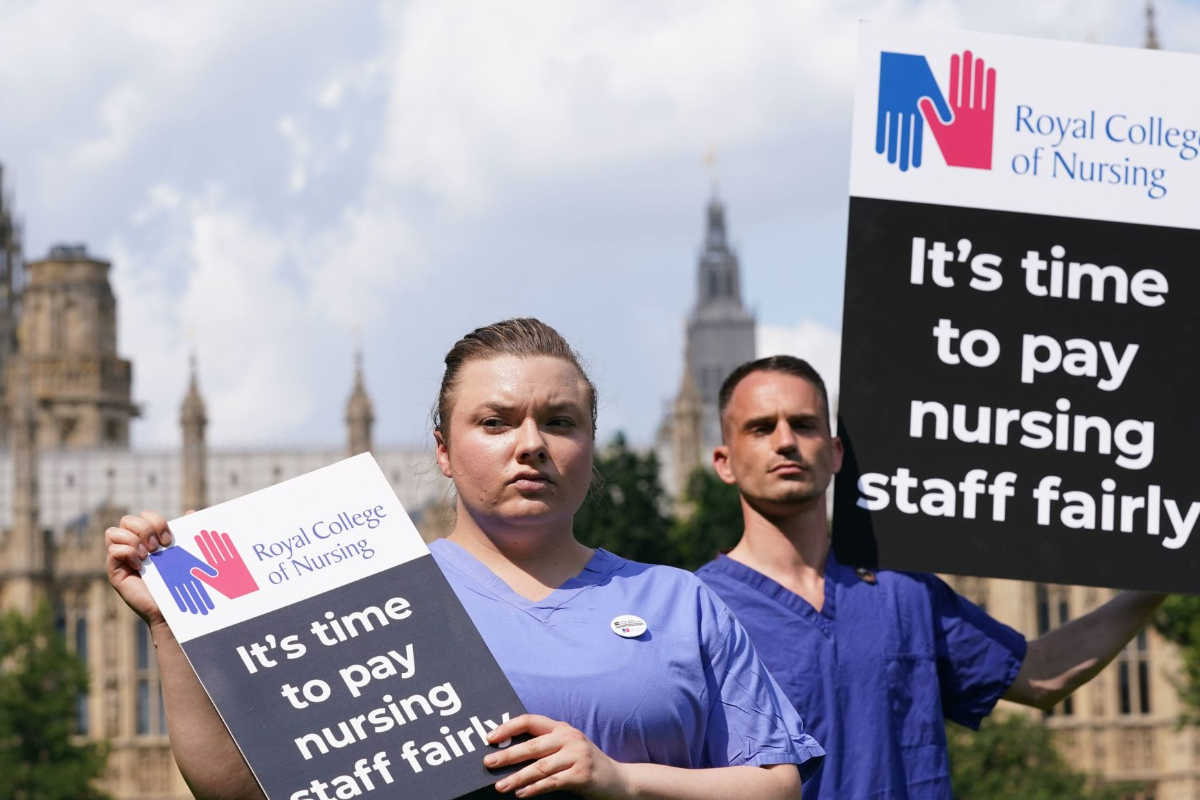- RCN wants salary rises 5% higher than October’s RPI inflation rate of 14.2%.
- Doctors got 4.5% raises and NHS staff 4.75.
- Dialysis and chemotherapy will continue.
The Head of the Royal College of Nursing said, if the health secretary negotiates “seriously” over compensation, a strike by nurses set to begin this week may be postponed.
“I won’t dig in if he doesn’t,” general secretary Pat Cullen told Media.
Pay, according to Foreign Secretary James Cleverly, should be reviewed by nonpartisan independent organizations.
The dates of December 15 and 20 are set for walkouts in England, Wales, and Northern Ireland.
The RCN union is requesting that nurses receive salary increases that are 5% higher than the RPI inflation index, which stood at 14.2% in October.
In England for the upcoming year, the government has previously promised average pay rises of 4.5% for doctors and 4.75% for other NHS employees, including nurses.
Following a recommendation from the independent pay review organizations that make recommendations about pay increases for NHS employees, Ministers approved these.
As early as Monday morning, Ms. Cullen wanted the health secretary to meet with her one-on-one or engage in negotiations through Acas, the impartial agency that mediates conflicts between employers and employees.
She said the union would not be “found wanting” in the negotiations but she said its position had not changed.
Asked if the union could accept a lower pay rise, Ms. Cullen said: “Come to the table and let’s have the discussion.”
She said her priority was making sure nurses could “make ends meet”, adding: “It’s not about lining their pockets with gold.”
Mr. Cleverly said Health Secretary Steve Barclay had already met with union officials, but added: “Ultimately, salary negotiations are done between union leaders on behalf of their members and their employer. And in this instance, the nurses’ employer is the NHS.”
Prof. Stephen Powis, the medical director of NHS England, said the government and the independent review committee should deal with wage issues.
He claimed that during the walkouts, essential treatments like renal dialysis and chemotherapy would still be provided, but that other services would be hampered.
The provision of life-sustaining treatment while on strike is required by trade union statutes.
According to Prof. Powis, the NHS is seeing “trouble developing this winter” as more people are visiting A&E departments and more hospital patients are becoming ill with the flu.
The NHS was ready for the walkout, according to Mr. Cleverly and Prof. Powis, who also stated they intended to minimize any disruption.
The Scottish government upped its offer to nurses and other healthcare professionals to a minimum increase of £2,205 with more for some staff, which was comparable to an increase of 7.5% on average.
The public sector employees’ union Unison has supported the offer to its members in Scotland and talks with unions are still ongoing.
The general secretary of Unison, Christina McAnea, stated that the threat of pre-Christmas strikes “may easily be lifted” if Mr. Barclay were to follow Holyrood’s lead and commit to raising wages this year.
According to the Department of Health and Social Care, the government fully adopted the recommendations of the independent NHS Pay Review Body, giving newly qualified nurses a 5.5% pay raise while giving those with the lowest earnings, such porters and cleaners, pay increases of up to 9.3%.
“Ministers have had constructive talks with unions, including the RCN and Unison, on how we can make the NHS a better place to work – and have been clear the door remains open for further talks,” a spokesperson for the department added.
[embedpost slug=”rishi-sunak-rescinds-10-nhs-appointment-penalty/”]





















